- Home
- Tim Lebbon
London Eye: 1 (Toxic City) Page 2
London Eye: 1 (Toxic City) Read online
Page 2
Jack groaned. He was staring down at his leg, watching as pressure pumped the blood past his pressing hands.
Rosemary stood by Jack's feet and looked at Lucy-Anne. “Girl, I'll give you a reason to believe,” she said, and then she knelt beside the wounded boy. Jack tried to wave her away, but his coordination was failing.
“Let her,” Jenna said.
Lucy-Anne watched. Her own heart was beating in time with Jack's pulsing blood, and she held the knife so tight that her fingers hurt. I won't let go, she thought. Not until I'm sure. But she was holding the knife on her best friends in the world, and something about that made her feel sick.
Rosemary lifted Jack's hands away from his wound, and used a small pair of scissors to cut open his sodden jeans. Then she replaced his hands with her own. She gave him a quick, sad smile, and then her eyes closed. Her face went blank—empty—as though she had gone elsewhere.
And then her hands slipped inside Jack's leg.
When Jack came to, Jenna was on her hands and knees mopping up the blood, but she could not take her eyes off the old woman. Rosemary sat at the kitchen table again, drinking water and sighing as though it were nectar.
“Do you actually fix it, or is it, like…?” Lucy-Anne trailed off. She was sitting opposite the old woman. She had a knife in her left hand, resting on her leg, and as she shifted it fell to the floor. She did not seem to notice.
“Hey…” Sparky lifted the short sleeve of his tee shirt exposing the tattoo of his brother's name that he'd done himself. He'd been drunk at the time, and the ‘S’ of Stephen looked more like an ‘F.’ “Can you fix this?”
Rosemary smiled and shook her head.
“How about this?” Sparky pointed at his face.
Rosemary frowned. “What's wrong with it?”
“Ugly,” Jack said, and it seemed to take all his energy. Here he was, subject of a miracle, and everyone's attention was elsewhere. But when he looked at his leg at last—and saw the smooth spread of skin that minutes earlier had been pouting open—he realised that he was wrong. He was not the miracle at all.
“So do you now believe, non-believer?” Jenna roared, her voice mock-deep. Jack stood cautiously, leaning against the wall. He put weight on his leg. It felt as though the wound had never been there at all.
“You stabbed me.”
“Well…” She shrugged, raising her eyebrows.
“Yeah,” Jack said. “I believe.”
“So can we all talk now?” Jenna asked. She sat at the table and motioned the others to join her.
This is it, Jack thought. This is when it all changes. I've been touched already, but if we sit and listen to this woman, we'll get drawn in. Rosemary smiled at him, inviting him to join them at the table, and in that moment he saw something of his mother in her. She was much older than his mum—maybe seventy-five—and weary, worn by time and circumstance. But she exuded a deep-set goodness from every pore.
“Does it hurt to heal?” Jack asked. That question suddenly seemed very important.
“No,” she said. “It feels as natural as breathing.”
Jack nodded, went to the table and sat down next to Lucy-Anne. She grabbed his hand and squeezed too hard, her nervousness and excitement obvious. Sometimes he sensed such violence in her that it scared him.
“So why have you come for my father?” Jenna asked.
“Things are falling apart,” Rosemary said. She sighed, and looked around the table. “How much do you all know?”
“We know it wasn't terrorists,” Jack said. “An army scientist crashed a helicopter into the London Eye and released a virus they called Evolve.”
“Angelina Walker,” Jenna said. “No one knows why she did it.”
Jack nodded. “We know that not everyone in London was infected and killed.”
“And that the survivors are hunted,” Jenna added.
“And they're special,” Lucy-Anne said. “They're called Irregulars, like you.”
“Not all like me,” Rosemary said. “I can heal. Others can do different things, a whole host of amazing things. And we're all sought-after by the Choppers.”
“Choppers?”
“That's what we call the ones that hunt us. You call them Capital Keepers. But whether they're scientists or military, it doesn't really matter. When they catch an Irregular they do…terrible things. So we call them Choppers.”
“What terrible things?” Lucy-Anne asked, squeezing Jack's hand even harder.
Rosemary closed her eyes. “We need help. We need to get out of there, and the only way that will happen without slaughter is if the general public—all of them—know the truth of what's happening. We need exposure.” She looked at Jenna. “That's why I came to find your father. To ask him to come in with me, gather evidence, and then present it to the world. So…will he be here soon?”
“It's us you're talking to here!” Lucy-Anne said. She stood sharply, sending her chair scraping across the floor. “And don't you bloody dare look down on us just because we're just kids. We've all grown up a lot since Doomsday, because we've had to.” She pointed at Jack. “Mother and father.” At Sparky. “Brother.” And herself. “Mother, father, brother.”
Rosemary's expression did not change at this roll-call of the missing and dead. “The last thing I'd call you is kids,” she said.
Lucy-Anne nodded, seemingly satisfied. When she sat down she held Jack's hand again, but this time it was a gentle touch.
“My dad's out with Mum,” Jenna said. “They go walking a lot. Sometimes they take me, but usually I just want to stay at home. We didn't lose anyone. But Dad…”
“He fought,” Rosemary said.
“Yeah.” Jenna nodded, staring past them all. “Looked for the truth. First they called him an activist, and threatened him with the law. When he ignored their threats, they took him.”
“He was in contact with several people in London,” Rosemary said. “People who could enhance their brainwaves to such an extent that they almost acted as radio transmitters and receivers.”
“‘Could’?” Sparky asked.
“When the Choppers discovered the communication, they took all three. Beheaded two of them in the street, so the word goes, and the other just disappeared. Camp H.”
“’H’ for what?” Lucy-Anne asked.
“Hope,” Rosemary said with a wry smile.
“That was the same time they took Dad?”
“Yes. But we don't think they bring outsiders to Camp H.”
“He never told us where he went,” Jenna said, “or who took him, or what they did to him. When he left, he was so full of fight and anger. Every time I kissed him goodnight, there was a real power about him. He had purpose. He came back two weeks later and…” She opened her hand like a quickly blooming flower. “Pff. Gone. Sometimes I can't believe he's still my dad.” The volume of her voice had grown, but the tears came as well, and Jenna shook with anger and grief.
“Then I suppose he can't help me anymore,” Rosemary said sadly.
“Is it true they implant something?” Sparky said. “When they take people and send them back. Something to kill them if they start investigating again?”
Rosemary shrugged slowly. “How can I know that? This is your world out here. I live in London, but that's a whole new world now.”
“You've heard of it though, right?” Jack asked.
“Rumours.”
“And you still came to ask him for help?”
Rosemary stared at him then, and Jack was certain she was trying to convey some message that she did not wish to voice. He stood, let go of Lucy-Anne's hand and walked to the kitchen sink. Outside, the sunset was burning across the ridges of neighbouring houses. Jenna's parents would be back soon.
“I need to know,” Jack said quietly.
“Me too,” Sparky said.
Lucy-Anne stood and ran her hands through her purple hair. “Yeah.”
Jack turned back and looked at Rosemary; an old woman, worn and
tired, scarred and grubby, but filled with an astonishing power that the government had gone to brutal measures to conceal.
“We'll come,” he said.
Rosemary nodded slowly and smiled. “The second you were all here together, I knew that would happen.”
“Another power?” Jenna asked. “You're an empath?”
“No, dear,” the old woman laughed. “I'm human.”
They split up, agreeing to meet at Camp Truth at dawn the following morning. Jenna and Sparky were taking Rosemary there to sleep. They said it was probably the safest place of all, but the old woman seemed too tired to be afraid.
She scared Lucy-Anne. There was something…different about her. There was that incredible thing she had done with Jack's leg, yes, but she seemed so very out of place here in the village. She sat at Jenna's table and drank tea, ate toast, talked to them and fended their questions, but to Lucy-Anne it seemed as if she were from another world.
In a way, she supposed that was true.
Jack had been keen to get home to his sister Emily, so Lucy-Anne had walked home alone. She'd stopped in the corner shop and bought a bottle of cheap red wine, joking with the boy behind the counter who flirted with her every time she went in. He was her age but seemed so much younger, and she thought it was because he'd lost no one to Doomsday. He seemed happy and content, and blissfully unaware of what had gone on in his world because so little of it had touched him. Sometimes she thought of inviting him home to see if some of his carefree attitude would rub off on her. But she knew that she'd end up showing him pictures, and talking about those she had lost, so she'd left him with a smile and a sway of her hips.
Sitting in the living room of the big, empty house left to her when her family had vanished in the Toxic City, Lucy-Anne allowed the tears to come. Usually they were driven by grief and sadness, but today there was something else: the terror that soon, all her fears would be realised.
She had never, ever let herself accept the fact that they were dead.
She swigged from the bottle. It was half gone already, and she knew she should pour the rest down the sink. Last thing she wanted tomorrow was a hangover. But she was enjoying the fuzziness in her head, and it seemed to relax her muscles, enabling her to sink into the sofa and lose herself in the music blasting from her stereo.
“Sorry, Mum and Dad!” she called up to their bedroom. Led Zeppelin was particularly loud this evening, and she knew they didn't like it very much.
She never went into their room, and kept the door locked.
“Andrew, you always did like good music!”
Her brother's bedroom door was locked as well, but she had not felt able to remove his favourite CDs from where he'd left them scattered around the music system in the living room. Now they were her favourites, too.
She drank a little more, and spoke to her family, because this was the only place and time she would ever allow herself to do so: at home, alone, when no one could see her true desperation.
Tomorrow, everything was going to change.
It looks like a huge, open wasteland, but she can see its ghosts.
There used to be buildings here, and parks, and shops and pubs where people had mixed and chatted, laughing and scowling their way through life. It has all gone now, and their absence seems to make the sky far too large.
Instead there is a vast plain of broken rubble, exotic-looking plants and flattened, blurred areas that look so strange. She sees movement far away across the plain, and she squints into the merciless sun, shading her eyes to see whether it's people…or something else.
She walks towards the movement because it seems the best place to go. It's hot and harsh here, with a warm breeze blowing from the left and carrying a melange of scents: the dust of ages; dry, old rot; and something spicy and forbidden which she cannot identify.
As she nears the thing she saw moving, she finally makes out what it is. The pack of wolves is rooting at something buried deep in the ground. It's one of those strange blurred areas that she had seen, and she can now identify that effect as well: in this rugged plain of a dead city, this spread of land is as smooth as a bowling green.
The wolves growl, but she walks closer. She thought she had a knife in her pocket, still stained with the blood of a friend, but she frowns when she finds her pocket empty. Maybe she dropped it? She feels like a fool, because there are so many dangers out here.
She should be scared of the wolves, but she is not here for them. So she shouts and they flee, casting incongruous growls back as they disappear among the rubble.
The sky darkens as she walks out onto the flattened area. The breeze dies down, but she can smell rot well enough. And even though the sun has hidden its face behind a cloud, the glare of unearthed bones is obvious.
She kicks through the bones, hauling skeletons aside, rifling through half-rotten clothing, shouting out for her mother, father, and brother. She's desperate not to find them, but she cannot tear herself away.
And then there are her parents, dead but not rotten, buried deep down where the wolves had not reached, and there are worms in their eyes and beetles in their mouths, and even as she looks to the sky and screams she can see them still.
She will know them like this forever.
It is now believed that the explosion at the London Eye was a terrorist attack. Following the explosion, a toxic agent has been released into the atmosphere. Deaths have been reported in Westminster, Chelsea, Bayswater, Mayfair, and West Kensington. Security Services are closing off large tracts of south and west London, and residents are advised to remain indoors, close all windows and doors, and await further instructions. Please do not attempt to leave the city. More soon.
—BBC News Website, 5:15 p.m. GMT, July 28, 2019
Next morning, Jack and his sister Emily headed for Camp Truth. Rucksacks over their shoulders, they were walking into the sunrise and beginning a journey leading somewhere Jack had dreamed of for two years.
He felt that rush of youthful anticipation—part wonder, part fear—that had been absent for so long. But above that even now hung the crushing weight of his responsibility. He had Emily to look after and look out for, a young girl who sometimes had trouble remembering her parents’ faces when she was tired, crying and needing them most. Jack was always there for her, offering a hug and trying to hold back his own tears because he was the grown-up now. He was the one who played with Emily and told her off, washed her clothes and helped with her school work, prepared her meals and looked after the house. He sobbed with her sometimes, but other times he had to scold her if she misbehaved. He'd tried to tell himself that not tidying her room when he asked was too insignificant to worry about, but the gravity of Doomsday sometimes seemed to exaggerate the smallest of things.
Emily skipped on ahead, her rucksack bouncing on her back. She held her digital camera in one hand, fully charged the previous evening, strap wrapped around her wrist three times. Mum had bought it for her, and she'd treasured it ever since. Jack had lost count of the number of DVDs Emily had filled with random still and moving images, all of them seemingly meaningless but meaning the world to her.
They reached the edge of the village, and as they passed by the dilapidated old scout hut Jack felt nothing. He'd grown up in Tall Stennington, had many good times there—making mud pies at the village pond with his cousin when he was six; playing baseball on the green as his parents sat outside the pub; seen his first naked breast at twelve when Billy White smuggled him into his older sister's bedroom closet—but the bad far outweighed the good. Crossing the field towards the woods, he felt as if he was truly leaving his childhood behind.
“Don't run, you'll trip!” he called to Emily, and he laughed at the foolishness of his statement. They were heading for London, the Toxic City, where millions had died and the government claimed that monsters now lived. And he was worried about a grazed knee.
“What's wrong?” Emily called back.
Jack could only laugh and splutter s
ome more.
“You sound like a hyena.”
He ran after his sister, yapping and barking. She squealed and hurried on, and they were both sprinting as they entered the shadow of the woods, keen to leave the past in the cleansing sunlight.
They took a circuitous route around the edge of the woods, following a path popular with dog walkers and strolling lovers. Jack sometimes walked this way with Lucy-Anne, and a few times they'd gone deeper into the woods, spread a blanket and messed around. But recently there had always been a reason for their messing to end; wood ants on her naked legs, a noise from the bushes, a feeling that they were being watched. And not all the reasons had come from her. Jack tried to put it down to being scared, but it wasn't that, not really. He felt as if he had turned from Lucy-Anne's lover into her best friend, but he was not certain she thought that way. One day they'd have to talk about things, but she was such a strange girl; sometimes she scared him.
And sometimes, he knew, he just thought about things too damn much.
Clothes, water, food. He mentally flipped through the contents of his backpack. Washing stuff, money, knife. The beginning of the Exclusion Zone was thirty miles away, but they'd be able to get public transport for more than half that distance. Medicine, bandages, antibiotics. Beyond that, they'd walk. Rosemary said she knew where they were going. They'd have to trust her.
When they came close to the burned-down mansion, they paused. Emily had been here a few times, but usually Jack didn't like bringing her to Camp Truth, afraid that the responsibility of keeping the place secret would weigh too heavily on her young shoulders.
Sparky came crashing through the undergrowth. He was red in the face, sweating, and he carried a small rucksack over one shoulder, barely big enough to hold a spare tee shirt and jeans.
“Rosemary's still there,” Sparky said.
“Never thought she wouldn't be,” Jack replied. “The others here yet?”
“Jenna's just gone down to talk to her. Lucy-Anne's checking the drops on the way in.”

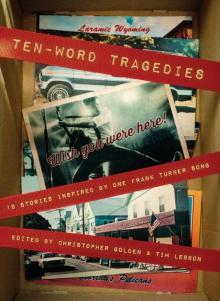 Ten-Word Tragedies
Ten-Word Tragedies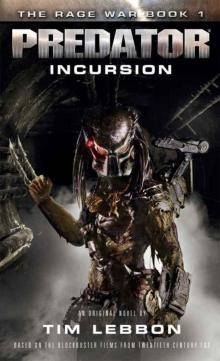 Predator: Incursion
Predator: Incursion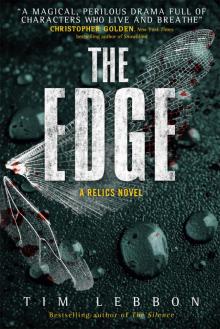 Relics--The Edge
Relics--The Edge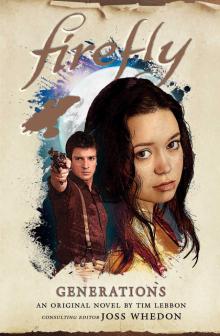 Firefly
Firefly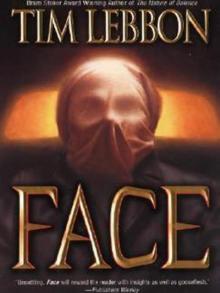 Face
Face Generations
Generations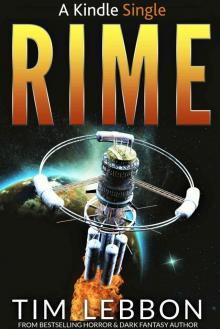 RIME (Kindle Single)
RIME (Kindle Single) Fallen
Fallen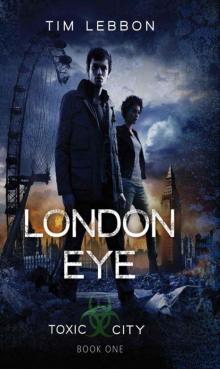 London Eye tc-1
London Eye tc-1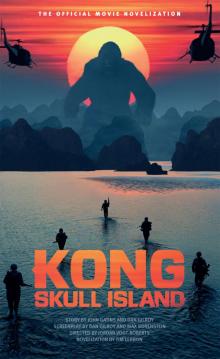 Kong: Skull Island
Kong: Skull Island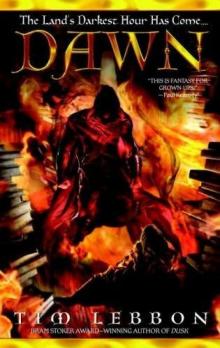 Dawn n-2
Dawn n-2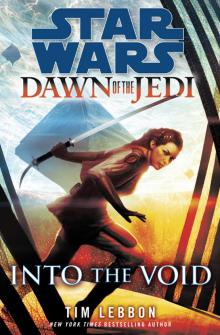 Into the Void: Star Wars (Dawn of the Jedi)
Into the Void: Star Wars (Dawn of the Jedi)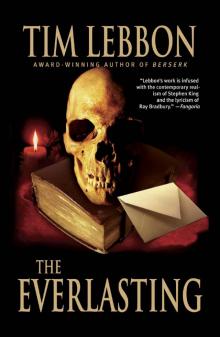 The Everlasting
The Everlasting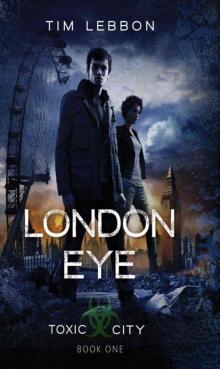 London Eye: 1 (Toxic City)
London Eye: 1 (Toxic City)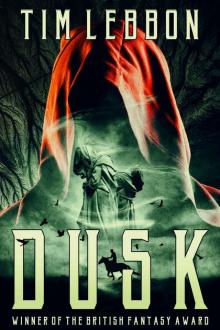 Dusk: a dark fantasy novel (A Noreela novel)
Dusk: a dark fantasy novel (A Noreela novel)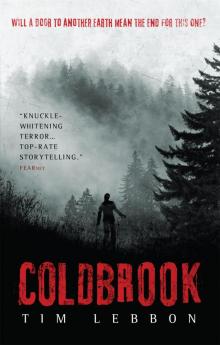 Coldbrook
Coldbrook Alien
Alien Dusk
Dusk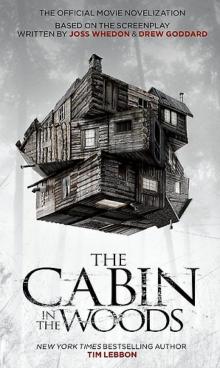 The Cabin in the Woods
The Cabin in the Woods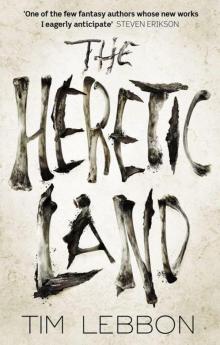 The Heretic Land
The Heretic Land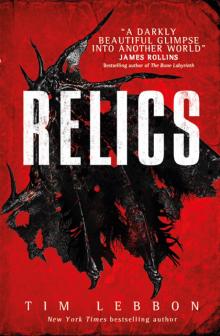 Relics
Relics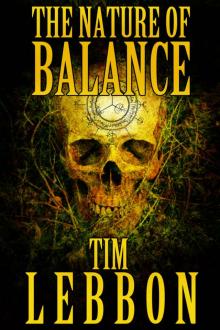 The Nature of Balance
The Nature of Balance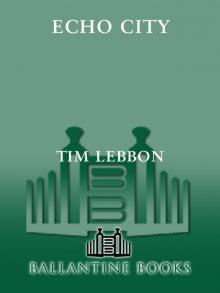 Echo City
Echo City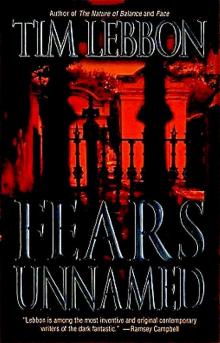 Tim Lebbon - Fears Unnamed
Tim Lebbon - Fears Unnamed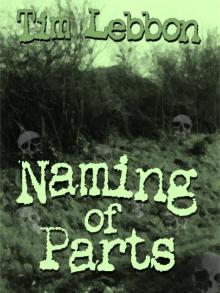 Naming of Parts
Naming of Parts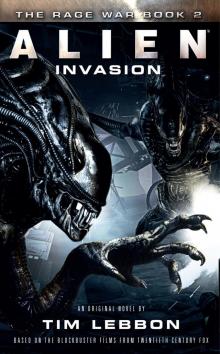 Alien--Invasion
Alien--Invasion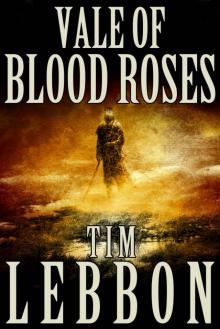 Vale of Blood Roses
Vale of Blood Roses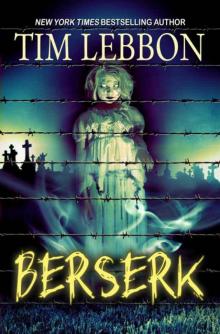 Berserk
Berserk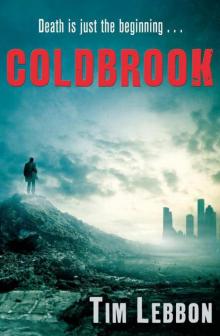 Coldbrook (Hammer)
Coldbrook (Hammer)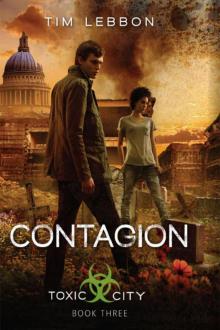 Contagion tc-3
Contagion tc-3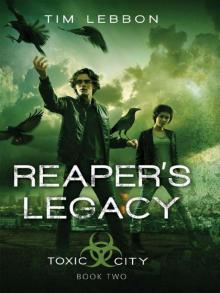 Reaper's Legacy: Book Two (Toxic City)
Reaper's Legacy: Book Two (Toxic City)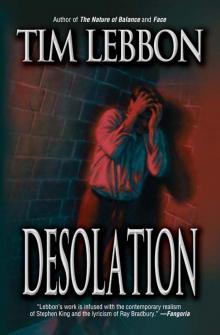 Desolation
Desolation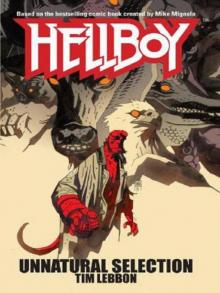 Unnatural Selection
Unnatural Selection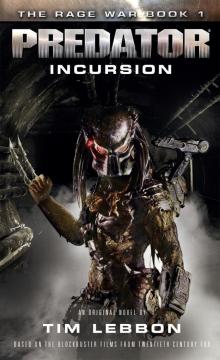 Predator - Incursion
Predator - Incursion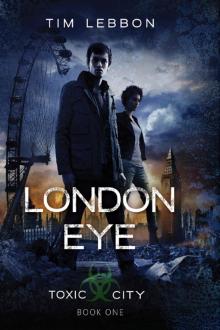 London Eye
London Eye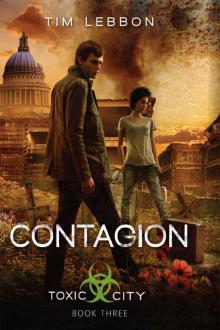 Contagion (Toxic City Book Three)
Contagion (Toxic City Book Three) The Silence
The Silence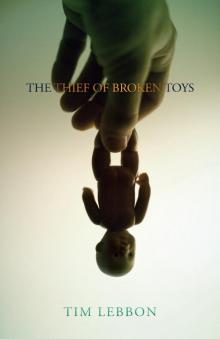 The Thief of Broken Toys
The Thief of Broken Toys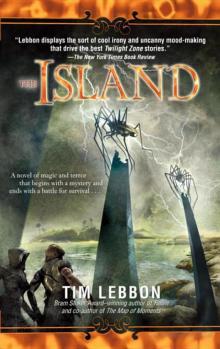 Tales of Noreela 04: The Island
Tales of Noreela 04: The Island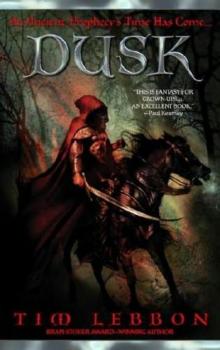 Dusk n-1
Dusk n-1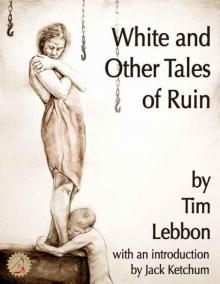 White and Other Tales of Ruin
White and Other Tales of Ruin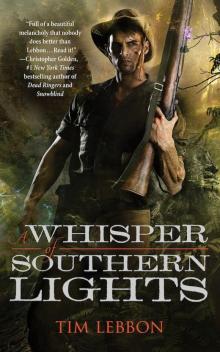 A Whisper of Southern Lights
A Whisper of Southern Lights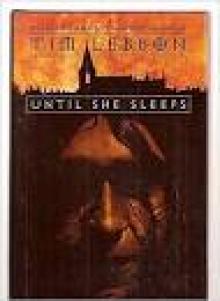 Until She Sleeps
Until She Sleeps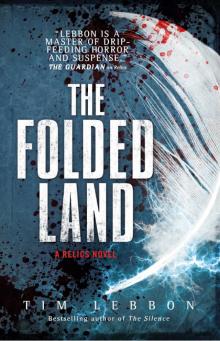 Relics--The Folded Land
Relics--The Folded Land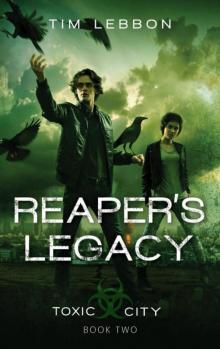 Reaper's Legacy tc-2
Reaper's Legacy tc-2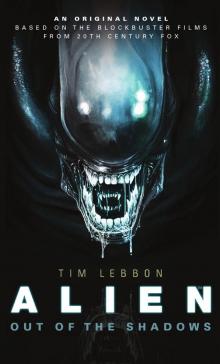 Alien: Out of the Shadows
Alien: Out of the Shadows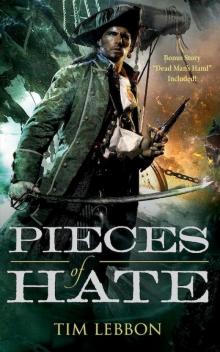 Pieces of Hate
Pieces of Hate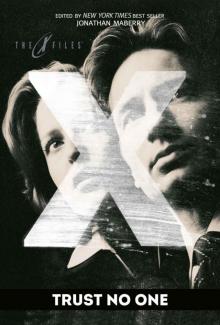 X-Files: Trust No One
X-Files: Trust No One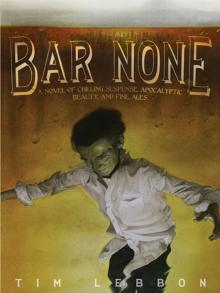 Bar None
Bar None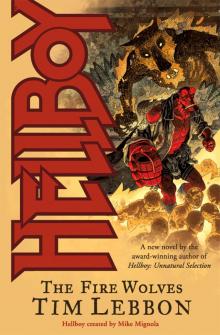 The Fire Wolves
The Fire Wolves